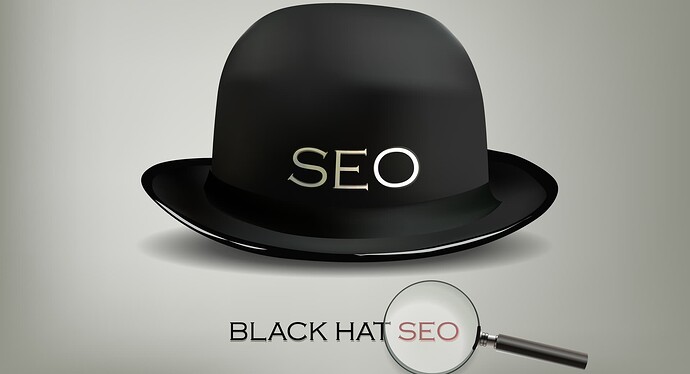In 2024, the landscape of Search Engine Optimization (SEO) continues to evolve, becoming increasingly complex and competitive. As businesses strive to rank higher on search engine results pages (SERPs), the debate between Black Hat SEO and White Hat SEO practices has become more pronounced. Understanding the differences between these two approaches is crucial for any digital marketer aiming to succeed in this dynamic environment. This article delves deep into the strategies, risks, and ethical considerations associated with Black Hat and White Hat SEO in 2024.
Understanding Black Hat SEO
Black Hat SEO refers to a set of unethical practices designed to improve a website’s ranking on search engines quickly. These techniques often violate search engine guidelines and can result in severe penalties, including de-indexing of the website. Despite the risks, some marketers still resort to Black Hat SEO in an attempt to gain a competitive edge.
Common Black Hat SEO Techniques in 2024
- Keyword Stuffing: Although search engines have become more sophisticated, keyword stuffing remains a prevalent Black Hat SEO tactic. This involves overloading a webpage with targeted keywords in an unnatural way to manipulate its ranking. However, search engines like Google have advanced algorithms that can easily detect and penalize such practices.
- Cloaking: Cloaking is a deceptive technique where different content is presented to search engines and users. For instance, a website might show a search engine a page optimized for ranking while displaying irrelevant content to users. This technique is highly frowned upon and can lead to significant penalties.
- Private Blog Networks (PBNs): PBNs are a network of websites used to build backlinks to a single website, thereby boosting its authority and ranking. While this method can produce quick results, search engines are adept at identifying and penalizing websites that engage in this practice.
- Hidden Text and Links: Some Black Hat SEO practitioners use hidden text or links that are invisible to users but readable by search engines. This technique involves embedding white text on a white background or placing links behind images. These manipulative practices are easily detected by search engines and can result in severe consequences.
- Link Farms: Link farms are groups of websites that link to each other to artificially inflate their backlink profiles. While this might boost rankings temporarily, search engines are quick to penalize websites involved in such schemes.
The Risks of Black Hat SEO
Engaging in Black Hat SEO may offer short-term gains, but the long-term consequences can be disastrous. Search engines are constantly updating their algorithms to identify and penalize websites that employ unethical practices. Penalties can range from a drop in rankings to complete removal from search engine indexes, effectively rendering a website invisible to users.
Moreover, Black Hat SEO practices can damage a brand’s reputation. In today’s digital age, transparency and trust are paramount. If users discover that a brand is using deceptive tactics to rank higher on search engines, it can lead to a loss of credibility and customer trust.
Embracing White Hat SEO
White Hat SEO refers to ethical practices that comply with search engine guidelines and aim to improve a website’s ranking through quality content and a positive user experience. Unlike Black Hat SEO, White Hat SEO is a long-term strategy that focuses on building sustainable success.
Key White Hat SEO Techniques in 2024
- Quality Content Creation: In 2024, content remains king. Creating high-quality, relevant, and engaging content is one of the most effective White Hat SEO strategies. Search engines prioritize content that provides value to users, so focusing on producing informative and well-researched articles, blogs, and multimedia content can significantly boost your rankings.
- Mobile Optimization: With the increasing use of mobile devices, optimizing your website for mobile is essential. Responsive design, fast loading times, and a seamless user experience on mobile devices are critical factors that search engines consider when ranking websites.
- User Experience (UX): Search engines are placing greater emphasis on user experience in 2024. Factors such as site speed, navigation, and overall usability play a significant role in determining a website’s ranking. A positive UX encourages users to stay longer on your site, reducing bounce rates and improving your rankings.
- High-Quality Backlinks: Building high-quality backlinks from reputable websites remains a cornerstone of White Hat SEO. Unlike Black Hat SEO, which relies on link schemes, White Hat SEO focuses on earning backlinks through genuine relationships and valuable content that other websites naturally want to link to.
- On-Page Optimization: Proper on-page optimization, including the use of relevant keywords in meta tags, headers, and alt texts, is crucial for improving a website’s ranking. However, unlike keyword stuffing, White Hat SEO emphasizes the natural and user-friendly integration of keywords.
- Local SEO: With the rise of voice search and localized queries, focusing on local SEO has become increasingly important. Optimizing your website for local search terms, creating and maintaining a Google My Business profile, and gathering positive reviews can significantly enhance your visibility in local searches.
The Long-Term Benefits of White Hat SEO
While White Hat SEO requires more time and effort compared to Black Hat SEO, the long-term benefits are substantial. By adhering to ethical practices, you not only avoid the risk of penalties but also build a strong, sustainable online presence that attracts and retains users. A website that consistently provides value to its audience will naturally climb the search engine rankings over time.
Moreover, White Hat SEO contributes to building a positive brand reputation. In a world where consumers are increasingly concerned about transparency and ethical practices, brands that prioritize White Hat SEO are more likely to gain the trust and loyalty of their audience.
Conclusion: Choosing the Right Path in 2024
As we move further into 2024, the importance of choosing the right SEO strategy cannot be overstated. While Black Hat SEO might seem tempting due to its promise of quick results, the risks and potential damage far outweigh the benefits. On the other hand, White Hat SEO offers a sustainable, ethical, and effective approach to improving your website’s ranking and building a strong online presence.
Ultimately, the choice between Black Hat and White Hat SEO comes down to your long-term goals. If you’re committed to building a reputable brand and achieving lasting success, White Hat SEO is the clear choice.

